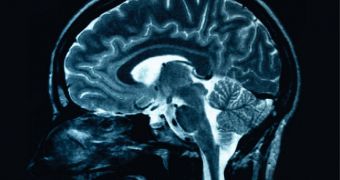Scientists at the Concordia University say that one of the reasons why seniors and older adults begin to forget things is because their brains are literally cluttered with too much unimportant information.
The team argues that memory loss should not be considered to be a natural function of aging. In other words, it's not unavoidable to forget things as people grow old. Yet, this happens most of the time.
Therefore, in order to improve cognitive performances, all people have to do is “defrag” their brains, say investigators. By continuing the computer analogy, we should also discard all the data in our recycle/trash bins, so as to help the brain function more efficiently.
During the new investigation, the experts took a close look at the reasons why aging has gotten to a point where it's automatically associated with a decline in memory, PsychCentral reports.
The new insight the team got into this issue is detailed in the latest issue of The Quarterly Journal of Experimental Psychology. The main conclusion is that the brain loses some of its key abilities simply because their performances in resolving tasks are reduced by the presence of irrelevant data.
Some of the abilities that are lost include learning and memory, the Concordia group argues. “The first step of our study was to test the working memory of a younger and older population and compare the results,” explains Mervin Blair.
“In our study, working memory refers to the ability of both retaining and processing information,” adds the expert, who is also the first author of the study. In the investigation, 30 people aged around 23 were compared with 30 participants aged 67.
“Overall, we showed that our older participants had reduced working memory compared to our younger participants,” the expert adds. When it came to recalling and processing information, younger people fared much better off than seniors.
Older adults seemed to lack an ability called inhibition deletion, which is basically when the brain figures out it is dealing with irrelevant data, and seeks to eliminate those data from memory.
“Poor inhibition predicted a decline in the recall component of working memory and it also predicted decline in the processing component of working memory,” Blair explains further.
According to the expert, some of the methods seniors could use to reduce irrelevant data clutters from their brains include performing tasks that challenge and stimulate the brain. Applying stress-reduction techniques might work too, he adds.
However, gaining this ability is not exactly easy, and some time may pass before people doing these exercises start to feel their effects.

 14 DAY TRIAL //
14 DAY TRIAL //